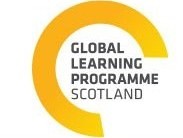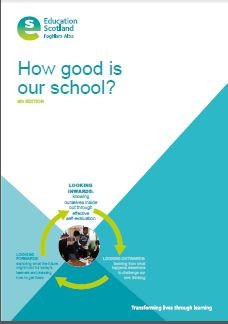The first meeting of the Learning for Sustainability national practitioner network took place on Friday 30th October. Practitioners representing nineteen different local authorities worked alongside partner organisations (including Keep Scotland Beautiful, WOSDEC, LfS Scotland and Architecture and Design Scotland) during a very productive day of conversation, sharing and planning. Class teachers, faculty and department heads, principal teachers, head teachers, depute heads, curriculum support officers and child development officers got together to share some of the fantastic work already taking place.
The wealth of experience and commitment to LfS was wholly evident, as was the enthusiasm and determination of delegates to ensure that their efforts have an impact in their local authorities and beyond. Comments on the LfS Newsfeed included:
 “Loved hearing about all the excellent LfS projects going on across Scotland…inspiring stuff! Looking forward to collaborating with like minded people to spread the good work more widely.”
“Loved hearing about all the excellent LfS projects going on across Scotland…inspiring stuff! Looking forward to collaborating with like minded people to spread the good work more widely.”
“Great to share practice and successes across different sectors. Need to identify gaps and future opportunities for Learning for Sustainability (LfS) to ensure we keep the momentum going.”
“Great morning so far at the LfS practitioners network. Lots of really inspiring work going on all across Scotland!”
The full range of discussions, approaches and resources shared can be found in the LfS professional learning community . However, the list below picks out some of the tasks that network members are planning to take forward through a process of collaboration and co-creation:
- Getting started : LfS whole school strategic approaches in the secondary school
- Professional review and development resource: getting the most out of LfS in the standards
- Progression and transitions: programmes of support to build on LfS successes
- LfS in National Qualifications
- Progression in secondary using the John Muir Award
- Planning and progression in ASL sector
- Using new GLOW functionality (Delve) to organise curricular resources
- LfS-specific Resource Calendar
- Outdoor learning skills progression
Please join in the discussions if you are keen to be part of this process. If your local authority is not already represented on this network, please contact Anthony.Hutcheson@educationscotland.gsi.gov.uk for further information.








 Scottish teachers are able to benefit from a wide range of free resources produced by charities and NGOs to support global citizenship education and learning for sustainability. The
Scottish teachers are able to benefit from a wide range of free resources produced by charities and NGOs to support global citizenship education and learning for sustainability. The 
